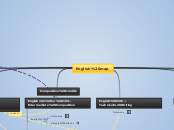English map
Pre-College
Language Learners
AESL
EAP
ABE
English 85
English 95
ALP (101 with support)
I-Best
English 101-- Beg. College-level Composition
Theme-based
Outcomes
Sample Syllabus
Course Map
English102 or 103--Intermediate Composition
English 102
Outcomes
Sample Syllabus
English 103
Outcomes
Sample Syllabus
English 235--Technical Writing
Outcomes
English--Creative Writing
English 276, 278, 279
English 278
Englsh 279
English--Literature
Requires English 101
English 220 --Introduction to Shakespeare
English 234, 242, 271, 280
English& 244--American Literature I
English& 245--American Literature II
English& 246--American Literature III
English 261--Bible as Literature
English 262--Children's Literature
English 264-5--English Literature
